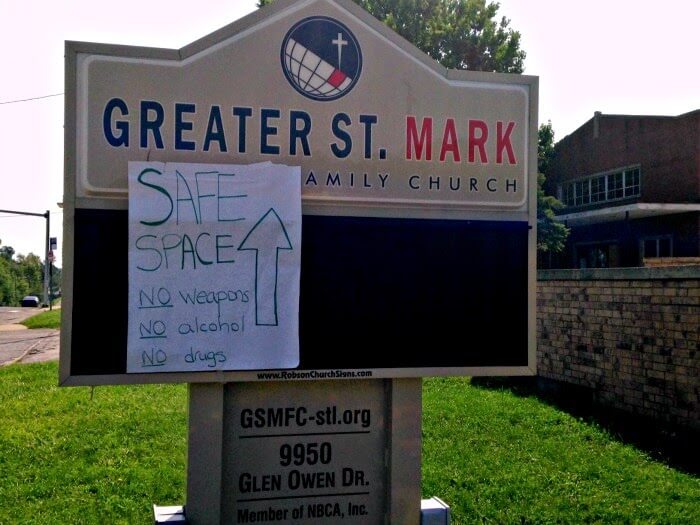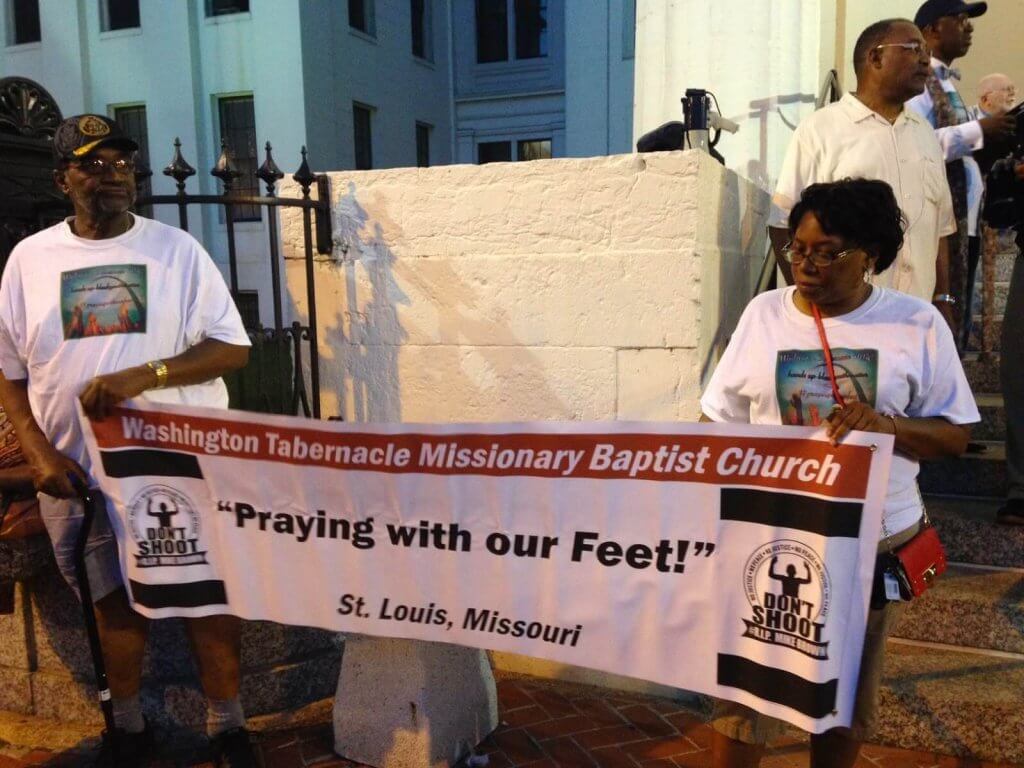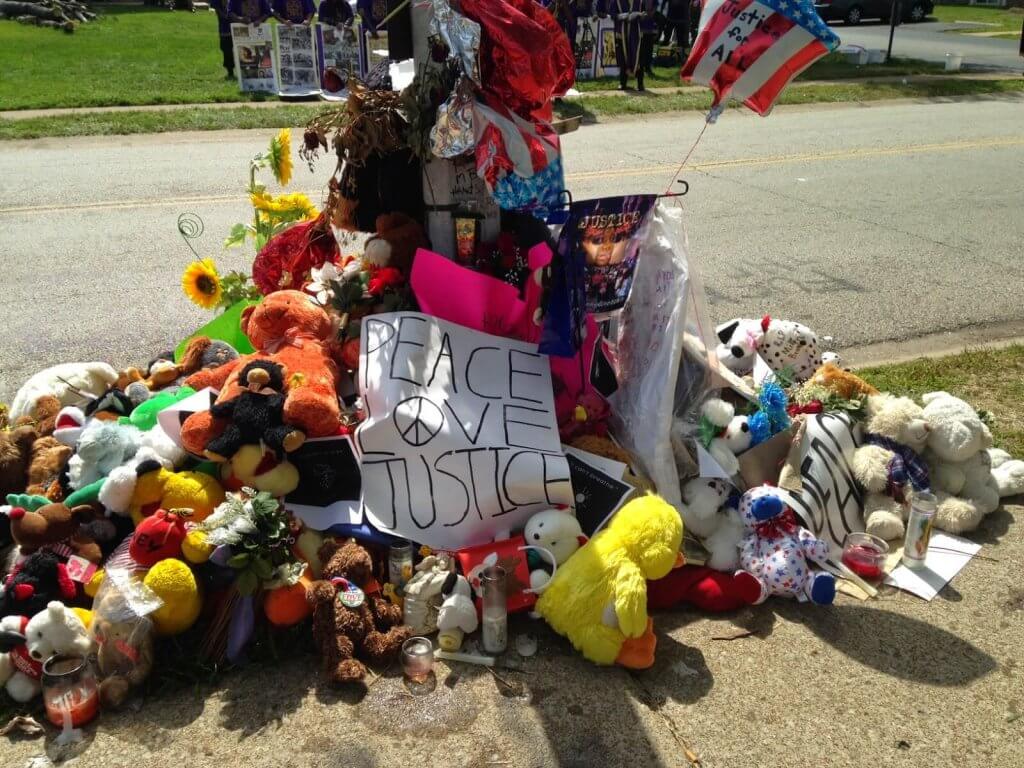Ferguson is closer than you think.
This is what I take away from my weekend in Ferguson.
Last Wednesday night as I had watched the events in Ferguson unfold I had a very clear and bold feeling that I needed to go to Ferguson.
I wanted to be a witness.
I wanted to be a witness to what was taking place and I wanted to be a witness to the concern and support of the church to the community there. And so Friday afternoon I took to the road and traveled to Ferguson.
So much has been written about Ferguson. A lot of nonsense has been written but also some really profound reflections on race in America and especially on grace and the value of all human life, even imperfect and flawed lives. So much has been written I doubt that I have anything to add to the conversation.
But if I learned anything it is that everyone has something to add to the conversation.
And we need more conversations. Some of us need to listen more. Some of us need to talk more. But we all need to be part of the conversation.

I arrived in the late morning at Greater St. Mark Family Church, which was ground zero for much of the protests.
This is where clergy who were providing a calm presence for protesters met to pray. It is where first aid was administered to protesters suffering from tear gas burns. This church was raided four times by police.
I came to the church for voter registration training led by community organizers from PICO. PICO is a faith based community organizing network that had brought clergy together as well as other church leaders to work together with churches, community leaders and other organizations to bring about change.
One of the things that became clear from the events of the past week is that many people in the community feel disenfranchised and not included in the decisions made in their town that affect them. Changing that begins with voting.
It can be confusing and difficult to register to vote in Missouri. I, along with other volunteers from around the country as well as people from the community were there to help people register to vote as well as to help create a space where people could begin to have hope and begin to claim their stake in their surroundings.
It was a hopeful gathering.
At my age, having seen the civil rights movement in my childhood, having lived near by the riots after Rodney King, I had begun to despair that anything had or ever would change. But there are still people who believe that things can change and that people can make a difference. It made me hopeful.
So we canvassed door to door in the heat and humidity. Our task was not just to sign people up to vote, but to listen to people, listen to their stories and hopefully bring them into the hope that things can change.
I listened to a lot of people, Black and white, and I heard a lot of stories.
I know there is a narrative among many that the event that took place between a Ferguson police officer and an unarmed teenager has nothing to do with race. I need to say that I only hear white people say that. Regardless of what took place and what the motivations of either Michael Brown or that officer, it is racial. If we are not willing to acknowledge that, there will be no conversations.
One thing I heard is that most white people in Ferguson were totally taken by surprise by the events of the past two weeks. There are many integrated neighborhoods in Ferguson.
I think a lot of people assumed that meant that everything was okay. But everything was not okay. Which is why things cannot “go back to normal”. Whatever the outcome of the investigations of the shooting, things cannot go back to normal because normal had become intolerable for so many African Americans in Ferguson and many communities in our country.
There needs to be more conversations and more listening and more participation in our communities. But if there was one theme for my weekend in Ferguson, it was hope.
The young people who would not let either military police tactics or violent looting from others distract them from their peaceful insistence that things cannot go back to “normal” give me hope.

The gathering of clergy and religious leaders from all parts of the community at the Old Courthouse where the Dred Scott decision was handed down for a prayer vigil, where we prayed for our youth, law enforcement, government officials and our nation, as well as the Brown family gave me hope.
The funeral where there was a dogged insistence that Mike Brown’s death was not in vain, that someday these events will be seen as a turning point when this country began again to move forward to truly become a nation with “justice and liberty for all”, gave me hope.
As Rev. Al Sharpton said at the end of his powerful sermon as he picked up a bible “I’ve read the end of this book. The first will be last. The lion will lay down with the lamb. There will be justice.”
And all the people said amen.

Pastor Joelle Colville-Hanson
Director for Evangelical Mission, ELCA

